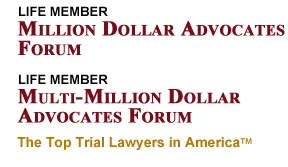Contingency Fee Cases May Increase
The U.S. Chamber of Commerce reported on July 14, 2010, that the U.S. Department of Treasury may be about to grant plaintiffs’ attorneys long-sought tax write-offs for the costs associated with fronting contingency-fee lawsuits.
As the law currently stands, attorneys outside of the Ninth Circuit who represent clients on a contingency fee basis cannot take a tax write-off for case related expenses in the year they are incurred. Since expenses on contingency cases often run into the tens or hundreds of thousands of dollars, this tax law has greatly discouraged attorneys from assisting clients who can only afford to seek justice on a contingency basis.
Legal Newsline cited a speech at the American Association for Justice, the trade association for the trial bar, in Vancouver where one of the group’s leaders told members he’s expecting a Treasury ruling on the write-offs soon.
So are the rumors true? For now, Treasury isn’t commenting. Similar situations have resulted in such rulings sooner rather than later, perhaps more so during the volatile economic times of the past several years.
Apparently at the heart of the matter is an April letter Sens. Max Baucus (D., Mont.) and Richard Durbin (D., Ill.) sent to Michael Mundaca, assistant secretary for tax policy, seeking clarity on the 9th Circuit ruling in the 1995 case of Boccardo v. Commissioner.
In the Boccardo case, the IRS asserted that out-of-pocket expenses incurred by attorneys on behalf of clients while prosecuting contingency cases are not deductible because the law firm expects reimbursement upon getting a settlement or judgment. The Tax Court agreed.
The 9th Circuit took up the matter. The letter sums up the ruling like this:
The court “held that attorneys who represent clients in contingency fee cases may treat litigation costs that are paid by the attorneys, such as filing fees and witness expenses, as deductible ordinary and necessary business expenses . . . when the attorney and client agree to a specific fee arrangement known as a gross fee contract.”
The IRS issued a memo saying that the ruling applied only to attorneys in the 9th Circuit. But the Tax Court has since recognized the validity of the decision in at least one other case, according to the letter.
Sen. Baucus introduced legislation in 2008 to allow attorneys to take an immediate deduction for attorneys’ fees in contingency cases in order to provide tax fairness. U.S. Sen. Arlen Specter tried to include a similar write-off in a 2009 tax bill. Such a write-off is extremely significant and could lead to firms taking on more cases.
Gregory D. Jordan is an Austin business attorney, Austin employment lawyer, and Austin business litigation lawyer. To learn more, visit Theaustintriallawyer.com.



